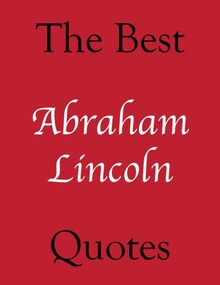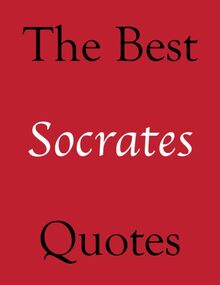-
 Univers
Univers
-
 Ebooks
Ebooks
-
 Livres audio
Livres audio
-
 Presse
Presse
-
 Podcasts
Podcasts
-
 BD
BD
-
 Documents
Documents
-
- Cours
- Révisions
- Ressources pédagogiques
- Sciences de l’éducation
- Manuels scolaires
- Langues
- Travaux de classe
- Annales de BEP
- Etudes supérieures
- Maternelle et primaire
- Fiches de lecture
- Orientation scolaire
- Méthodologie
- Corrigés de devoir
- Annales d’examens et concours
- Annales du bac
- Annales du brevet
- Rapports de stage
La lecture à portée de main
Vous pourrez modifier la taille du texte de cet ouvrage
Découvre YouScribe en t'inscrivant gratuitement
Je m'inscrisDécouvre YouScribe en t'inscrivant gratuitement
Je m'inscrisEn savoir plus
Vous pourrez modifier la taille du texte de cet ouvrage
En savoir plus

Description
Sujets
Informations
| Publié par | Crombie Jardine Publishing Limited |
| Date de parution | 22 mai 2017 |
| Nombre de lectures | 0 |
| EAN13 | 9780244909277 |
| Langue | English |
Informations légales : prix de location à la page 0,0210€. Cette information est donnée uniquement à titre indicatif conformément à la législation en vigueur.
Extrait
NOTE
The beauty of e-readers means that a variety of text fonts and type sizes can be selected, according to the reader’s preference. This text has been prepared in Palatino (medium, regular) and so the layout probably works best in this font.
RALPH WALDO EMERSON
Born in 1803, in Boston, Massachusetts, Ralph Waldo Emerson was an American philosopher, poet, essayist and lecturer who led the American Transcendentalist movement, a form of idealism, 1836-1861.
Emerson was one of eight children. His father, William, was a Unitarian Church minister who died of stomach cancer when Emerson was seven. In his youth, Emerson was much influenced by his mother, Ruth, and his aunt, Mary Moody Emerson – an intelligent, self-taught lady who was well-read and whose priorities in life revolved around literature, piety, and nature.
Having attended Boston Latin School, Emerson went to Harvard on a scholarship in 1817 (where he started to write his journals which he would keep going until 1875). On leaving Harvard in 1821, he taught at his brother’s School for Young Ladies in Boston and devoted himself to religious studies. In 1822 his first published work – an article entitled Thoughts on the Religion of the Middle Ages – appeared in the magazine Christian Disciple and Theologian Review . In 1825 he went on to Harvard Divinity School to train for the priesthood and the following year was licensed to preach.
In 1827 Emerson met a young poet, Ellen Louisa Tucker, who was the daughter of a successful Boston merchant. They were engaged the following year, and married in 1829, when Ellen was 18. This same year, Emerson was ordained pastor of the Second Unitarian Church of Boston. Sadly, in 1831 Ellen died of tuberculosis. Grieving, possibly depressed, and unable to find comfort in his religion, Emerson resigned from the church the following year and went on a tour of Europe. He was particularly struck by Paris and England, where he formed two significant philosophical ideas: Man and nature are one (The Jardin des Plantes in Paris had a great impact on Emerson. Whilst visiting it, he felt overcome and at one with nature and God); Everyone is uniquely important (During his travels he spent time in England and Scotland and met the Romantic poets William Wordsworth and Samuel Taylor Coleridge, and the historian and social critic Thomas Carlyle with whom he became friends. He found these great men surprisingly ordinary in many ways and wondered, if great men could be ordinary, then why not the other way around – that ordinary men be great?).
In 1833, on his return to America, Emerson used his travels as source material for lectures on spiritual living. His first lecture, The Uses of Natural History , was based on his experience in Paris. Other lectures around this time included On the Relation of Man to the Globe , Human Culture , The Present Age , and The Philosophy of History .
In 1834 he bought a house in Concord, Massachusetts. Here he was well-liked and respected, and referred to fondly as ‘the sage of Concord’. The following year he married Lydia Jackson. They went on to have four children (including Waldo, who died of scarlet fever in 1842).
In 1836 Emerson’s essay Nature was published, which outlined the philosophy of Transcendentalism and served as the founding manifesto of The Transcendental Club – whose first meeting was held in September that same year and included the Unitarian ministers George Ripley, Frederic Henry Hedge, James Freeman Clarke, Convers Francis, and George Putnam, the writer, teacher and philosopher Amos Bronson Alcott, the minister and essayist Orestes Brownson, and Emerson.
The aim of the Transcendentalists was to connect the individual to their inner selves, to nature, and to God. They were nonconformists, not worrying about what everyone else thought and did.
The philosophy was based on the concept that everyone is born with knowledge and that basic truths can be found through a person’s intuition (rather than through teaching and reason); that an individual can transcend the physical world of what they can hear, see, feel and touch and, in doing so, experience a deep spirituality; that reality can be found through thought rather than experiences; that everyone has the right and ability to be self-reliant and to live as they want to live; that all nature is significant and the goodness of nature is everywhere.
Members of the Transcendentalist Club later included the novelist Nathaniel Hawthorne, the poet Henry Wadsworth Longfellow, the writer Margaret Fuller (a feminist who wrote Woman in the Nineteenth Century ), the theologian and social reformer Theodore Parker, the poet and journalist Walt Whitman (“I was simmering, simmering, simmering. Emerson brought me to a boil.”), and the poet, philosopher and writer Henry David Thoreau. Thoreau mostly wrote about natural history and philosophy and ran a two-year experiment to put the philosophy of Transcendentalism into practice by living self-sufficiently in a hut at Walden Pond, at one with nature. He wrote about this experience in Walden , saying, “I went into the woods because I wished to live deliberately, to front only the essential facts of life, and see if I could not learn what it had to teach, and not, when I came to die, discover that I had not lived.”
This group of literary Americans who got together were looking to be independent in their work – independent from ties or links to England and Europe. Just as others before them had questioned assumptions, and traditional ways of thinking and writing, so the Transcendentalists looked to create something new based around the ideas of everyone’s equal right to freedom, knowledge, truth, and so forth. They argued that you didn’t have to live your life according to tradition, or be held back by what society deemed ‘acceptable’; you didn’t have to conform and try to be what was expected of you. On the contrary, tradition, religion and social forms were to be seen as burdens. In this way, each person could take time to find out who they really were.
In 1837 Emerson delivered his now famous Phi Beta Kappa lecture, The American Scholar , which at the time was called An Oration Delivered Before The Phi Beta Kappa Society at Cambridge . He urged people to stop looking to England and Europe for ideas and inspiration, but instead to look to themselves, to nature, and to art. The same year, Emerson delivered an address to Harvard Divinity School in which he criticized established religion. Emerson believed that inside every person was their own God’s voice and that this relationship was better than any that a church or religious institution could offer.
From 1840 to 1844 The Dial – the Transcendental journal of literature, philosophy and religion – was published, Margaret Fuller being its first editor, with Emerson taking over in 1842. In January 1842 Emerson had delivered a lecture called The Transcendentalist at the Masonic Temple, Boston, and this was published in The Dial later the same year. In the essay, Emerson defines the philosophy as a form of idealism, opposite to materialism.
In fact, Emerson wrote most of his essays first in the form of lectures. In 1841 Essays: First Series was published to mixed reviews. This included the essays Self-Reliance , The Over-Soul , Love , Friendship , and Heroism . In 1844, Essays: Second Series was published. This included The Poet , Experience , Gifts , Nature , and Nominalist and Realist . Both volumes focused on the subjects of man, nature and God.
In 1846 Poems was published.
In 1847-8 Emerson toured Europe, in particular the British Isles, lecturing. He wrote about his travels in English Traits (1856) which included chapters on land, race, ability, manners, truth, character, and wealth.
In 1849 Nature; Addresses and Lectures was published. This included the text of the lecture The Transcendentalist .
In a speech in 1851 Emerson denounced the Fugitive Slave Act.
In 1860 he published The Conduct of Life , based on a series of lectures about fate, power, wealth, culture, behaviour, worship, considerations, beauty, and illusions.
In 1862 Emerson delivered a lecture on American Civilization at the Smithsonian Institution in Washington. This year his protégé Henry David Thoreau died of tuberculosis, aged just 44. Emerson delivered the eulogy.
In 1867 he published a volume of poetry, May-Day and Other Pieces and in 1870 a series of later essays, Society and Solitude , was published. This covered such topics as society, civilization, art, eloquence, domestic life, farming, works and days, books, clubs, courage, success, old age.
At this time Emerson lectured on Natural History of Intellect . He continued to write, but his health began to decline and around 1871-2 he started experiencing memory problems. In 1872 there was a fire at his home which unsettled him greatly and after this he travelled abroad for a year.
Between 1874 and 1876 publications included an anthology of poetry entitled Parnassus , a collection of essays called Letters and Social Aims (covering topics from poetry and imagination to inspiration, greatness, and immortality) and Selected Poems .
By 1879, because of problems with his memory, Emerson ceased making public appearances. Along with Amos Bronson Alcott and others, he helped to found the Concord School of Philosophy.
In April 1882 Emerson caught pneumonia and died. He was buried in Sleepy Hollow Cemetery, Concord, Massachusetts.
A
≈
A chief event of life is the day in which we have encountered a mind that startled us.
≈
A child is a curly, dimpled lunatic.
≈
Activity is contagious.
≈
Adopt the pace of nature; her secret is patience.
≈
A foolish consistency is the hobgoblin of little minds, adored by little statesmen and philosophers and divines. With consistency, a great soul has simply nothing
-
 Univers
Univers
-
 Ebooks
Ebooks
-
 Livres audio
Livres audio
-
 Presse
Presse
-
 Podcasts
Podcasts
-
 BD
BD
-
 Documents
Documents
-
Jeunesse
-
Littérature
-
Ressources professionnelles
-
Santé et bien-être
-
Savoirs
-
Education
-
Loisirs et hobbies
-
Art, musique et cinéma
-
Actualité et débat de société
-
Jeunesse
-
Littérature
-
Ressources professionnelles
-
Santé et bien-être
-
Savoirs
-
Education
-
Loisirs et hobbies
-
Art, musique et cinéma
-
Actualité et débat de société
-
Actualités
-
Lifestyle
-
Presse jeunesse
-
Presse professionnelle
-
Pratique
-
Presse sportive
-
Presse internationale
-
Culture & Médias
-
Action et Aventures
-
Science-fiction et Fantasy
-
Société
-
Jeunesse
-
Littérature
-
Ressources professionnelles
-
Santé et bien-être
-
Savoirs
-
Education
-
Loisirs et hobbies
-
Art, musique et cinéma
-
Actualité et débat de société
- Cours
- Révisions
- Ressources pédagogiques
- Sciences de l’éducation
- Manuels scolaires
- Langues
- Travaux de classe
- Annales de BEP
- Etudes supérieures
- Maternelle et primaire
- Fiches de lecture
- Orientation scolaire
- Méthodologie
- Corrigés de devoir
- Annales d’examens et concours
- Annales du bac
- Annales du brevet
- Rapports de stage



















